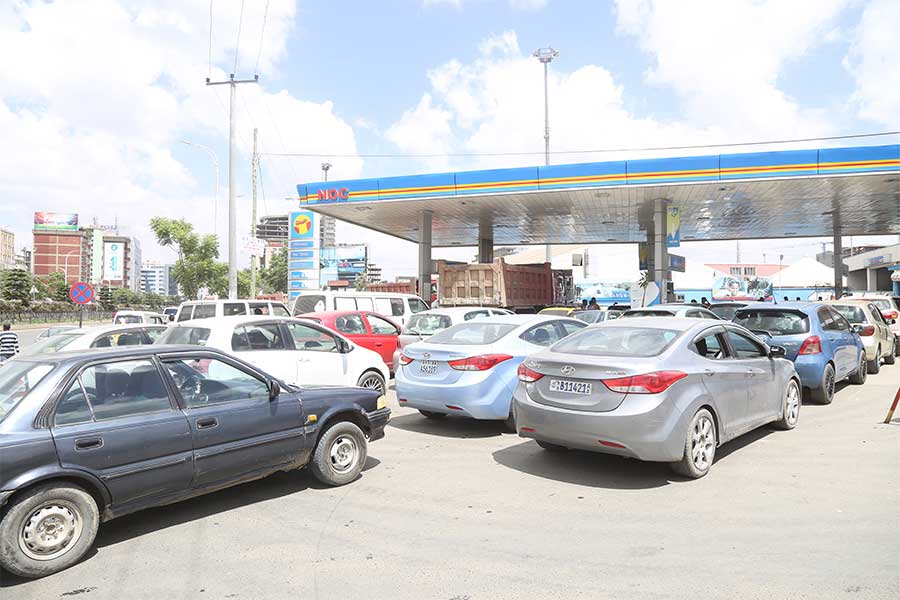
Covid-19 | Apr 04,2020
Mar 20 , 2021.
There is never a dull moment in the tense and combative relationship between regulators and companies in the downstream oil market. One such episode in this saga came earlier this month. It was only conspicuous in the long lines that began to form at fuel stations across the city. Oil distributors, bulk transporters and retailers pointed to some sudden rise in demand. The authorities at the ministries of Mines & Petroleum and Trade & Industry played to the usual tune: economic sabotage and hoarding.
Had not they cried wolf many times before on the latter, their claims might have received some nods.
Earlier this month, the federal government revised the retail price of benzene and diesel fuel by four cents and 14 cents a litre, respectively. Though it was a minimal hike compared to the 20pc increase over the previous two months, the revision fueled expectations of a further jump at the gas stations. Lo and behold, the queues disappeared in the days subsequent to the announcement.
In such a subsidised fuel business, the incentive to hoard is very high. The law of supply and demand practically ensures this. Transport service providers and manufacturers that depend on fuel to cover electricity interruptions in production could not afford to go without it. This is combined with growing demand and population - annual consumption increases by about 10pc. On the supply side, consumers have no option but to depend on the 34 companies and over 1,000 fuel stations across the country. Kenya next door has twice as many.
This is only part of the story. Low retail prices compound hoarding. The federal government heavily subsidises the commodity, to the tune of around 25 billion Br last year, for the only importer, the Ethiopian Petroleum Supply Enterprise. The authorities have currently set a rate of nearly 26 Br a litre, while Kenya has a retail price of 46 Br.
It is not always hoarding that causes a shortage, nonetheless. In fact, it is a symptom of how distorted the supply chain has become as a result of factors ranging from poor enforcement, weak infrastructure, recurrent political unrest, and strained communications between regulators and companies in the downstream oil business. Tying all of this together is the dilemma of unsustainably heavy subsidies (at least for a net importer such as Ethiopia) to pay for ever-increasing fuel consumption to compensate for a standard of living stunted by poverty.
As if things are not complicated enough, there is the Organisation of Petroleum Exporting Countries (OPEC), an intergovernmental cartel of oil producers that practically dictates crude oil prices on the world market. They indirectly call the shot on retail fuel prices at most countries' gas stations. The consequences of how many barrels of oil the cartel decides to produce have all sorts of economic and political implications around the world. Famously, in the mid-1970s, Arab members of OPEC cut oil supplies in protest of the United States’ support to Israel during the Yom Kippur War. It reverberated across the globe, leading to the downfall of Emperor Haileselassie's regime, coincidentally also sympathetic to Israel at the time.
Over the past year, OPEC and its ally oil-producing countries (OPEC+) have mustered enough of a consensus to agree to cuts on oil production. This has sent prices jumping to well over 60 dollars a barrel, a two-year high – grim news for net importers such as Ethiopia. Last year was a contrast. The total volume of petroleum imports decreased by 0.6pc, helped largely by a decline in jet fuel for the airline industry due to the COVID-19 pandemic. The value of imports fell by a much more significant amount, 11.4pc, primarily thanks to the crash in international oil prices.
It will be a different story this year, unaided by the further depreciation of the Birr. Over the last two and half years, the Birr has lost ground to the dollar by 35pc, and a further 20pc in the parallel market since January of this year.
The more than two billion dollars the country spends annually to pay for fuel imports is on the rise. Making matters worse will be a fight brewing over the revision of payment modalities between oil companies and the authorities, which forces the latter to pay for their purchases up front. The former insist that their margins – at one percentage point – are too low to agree to such modalities. Authorities at the federal government are reluctant to make further price hikes.
Under the current scenario, the commodity's usually politically combustible nature ensures that the federal government has little room to maneuver in the short to medium terms. The cost of living, at stubborn year-on-year inflation that has hovered around 20pc for over a year, has already eaten deep into the pockets of consumers, squeezing further an already low standard of living. It does not take much to imagine that further increases in the retail price of fuel, as seen over the past three months, could turn into further political instability. Sudan’s former President, Omar Hassan al-Bashir, found this out the hard way when the cost of living escalated partly due to heavy cuts to fuel subsidies.
For the moment, it is probably best to dig deeper into Ethiopia`s foreign currency reserves and tighten the lid on the import of capital goods while attempting to rationalise the supply chain. One of the significant obstacles to this is the combative relationship between companies in the downstream oil business and the regulators. The latter often dismiss real concerns, such as low-profit margins for oil companies and distributors, leading to too little competition in the market.
The businesses do not make the authorities' lives easier, given the prevalence of hoarding and illicit trading.
An atmosphere of goodwill should be established by recognising that, indeed, margins are too low for the companies and that rushing to implement payment modality reforms may be too sudden. The procedural hurdle of having difficulties in collecting debts from oil companies, which was cited as the reason for introducing the new modality, is not enough of a challenge to force through a change that could lead to further fuel shortages.
Other efforts could be made to improve the supply chain, some of which have gotten recognition. It is commendable that the Transport Ministry has made digitisation of services part of its 10-year plan, improving the tracing of supply chains and inventories. Integrating petroleum stations such as the Awash Depot to railway infrastructure such as the Ethio-Djibouti Railway is also an overdue project that would lessen delivery time and cut costs incurred in transportation.
This is not to mention how fuel can only be adequately supplied if the energy sector is diversified. Part of the fuel demand comes from manufacturers that use it as a backup for recurrent power outages. Incentivising the use of alternate energy sources is thus crucial. Here, policymakers should take a page out of their success in slashing the import of cars over the past year, partly due to environment-conscious excise tax reforms. Four-fifths of all vehicles imported over the first half of this fiscal year were brand new. The number of cars imported over the previous year during the same period was not only a third as many, but about 78pc of them were second-hand vehicles that on average consume much more fuel.
In the long-term, nonetheless, the inherent distortion of the system needs to be addressed. Hopefully, if a semblance of political certainty is returned and the economy rebounds, a rise in the standard of living can allow for a smoother phasing out of fuel subsidies. With an expanding economy where demand for energy consumption will go up, the government can only subsidise fuel imports for so long anyway. With regulated prices, it is also clear that businesses in the fuel supply chain have limited maneuvering room for innovation and that the downstream oil business will struggle to attract enough new players.
A careful and long-term phasing out of subsidies to reflect international prices is overdue. The most ideal will be a government with an electoral mandate, which should have no reason to fear this.
PUBLISHED ON
Mar 20,2021 [ VOL
21 , NO
1090]

Covid-19 | Apr 04,2020
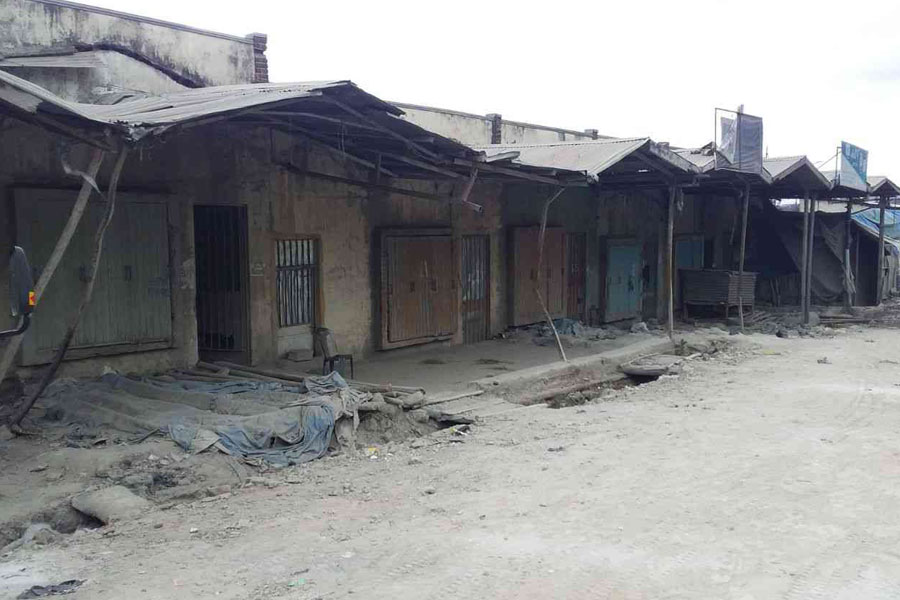
Fortune News | Jan 01,2023
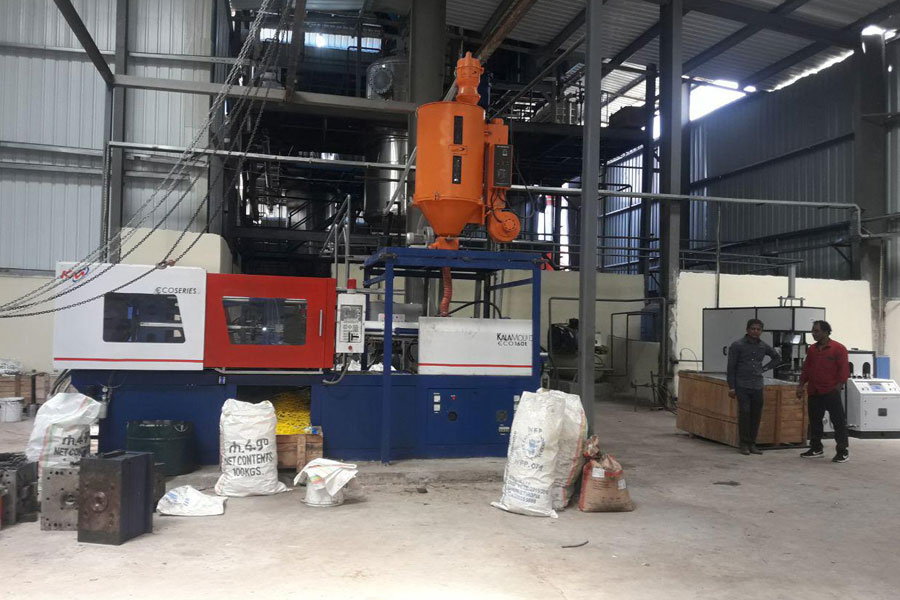
Fortune News | Feb 23,2019
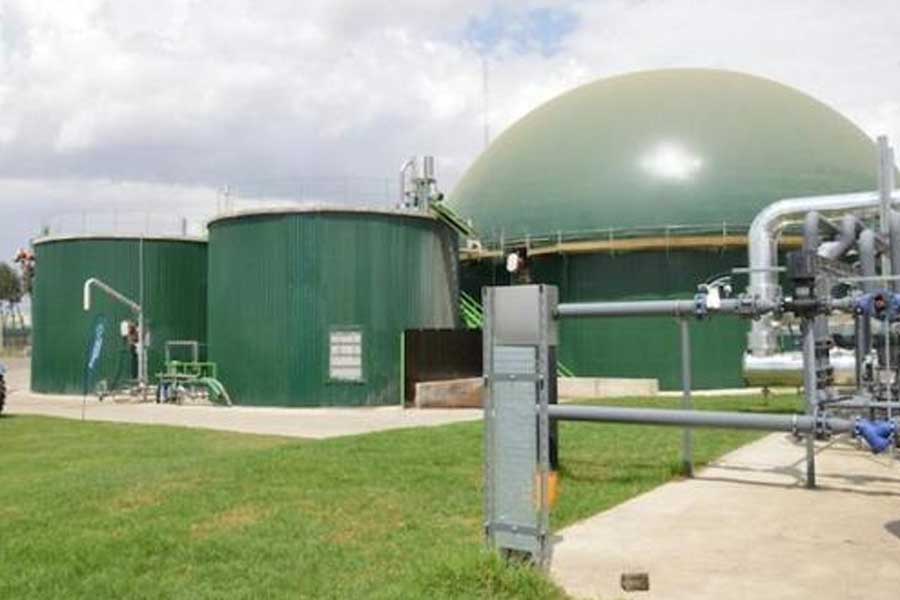
Fortune News | Feb 26,2022

Radar |

Fortune News | Oct 31,2020

Fortune News | Jun 05,2021
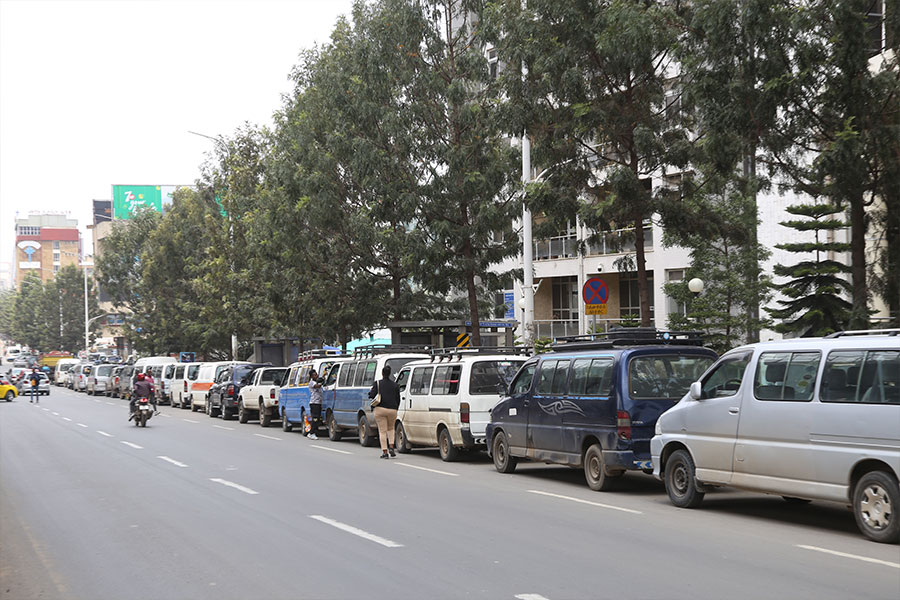
Fortune News | Jul 02,2022

Agenda | Nov 16,2024
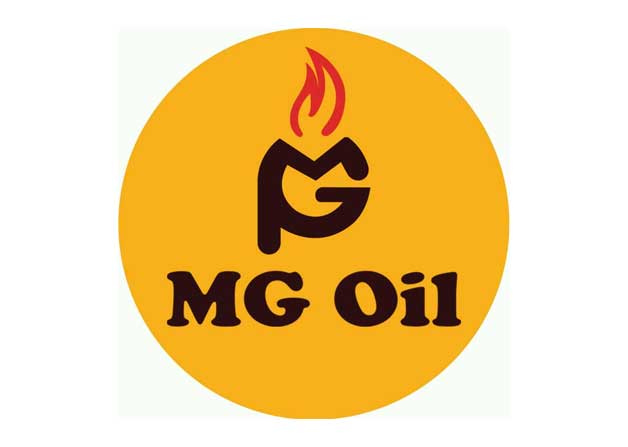
Fortune News | Jan 23,2021

My Opinion | 131819 Views | Aug 14,2021

My Opinion | 128203 Views | Aug 21,2021

My Opinion | 126147 Views | Sep 10,2021

My Opinion | 123767 Views | Aug 07,2021

Dec 22 , 2024 . By TIZITA SHEWAFERAW
Charged with transforming colossal state-owned enterprises into modern and competitiv...

Aug 18 , 2024 . By AKSAH ITALO
Although predictable Yonas Zerihun's job in the ride-hailing service is not immune to...

Jul 28 , 2024 . By TIZITA SHEWAFERAW
Unhabitual, perhaps too many, Samuel Gebreyohannes, 38, used to occasionally enjoy a couple of beers at breakfast. However, he recently swit...

Jul 13 , 2024 . By AKSAH ITALO
Investors who rely on tractors, trucks, and field vehicles for commuting, transporting commodities, and f...

Jul 6 , 2025 . By BEZAWIT HULUAGER
The federal legislature gave Prime Minister Abiy Ahmed (PhD) what he wanted: a 1.9 tr...

Jul 6 , 2025 . By YITBAREK GETACHEW
In a city rising skyward at breakneck speed, a reckoning has arrived. Authorities in...

Jul 6 , 2025 . By NAHOM AYELE
A landmark directive from the Ministry of Finance signals a paradigm shift in the cou...

Jul 6 , 2025 . By NAHOM AYELE
Awash Bank has announced plans to establish a dedicated investment banking subsidiary...